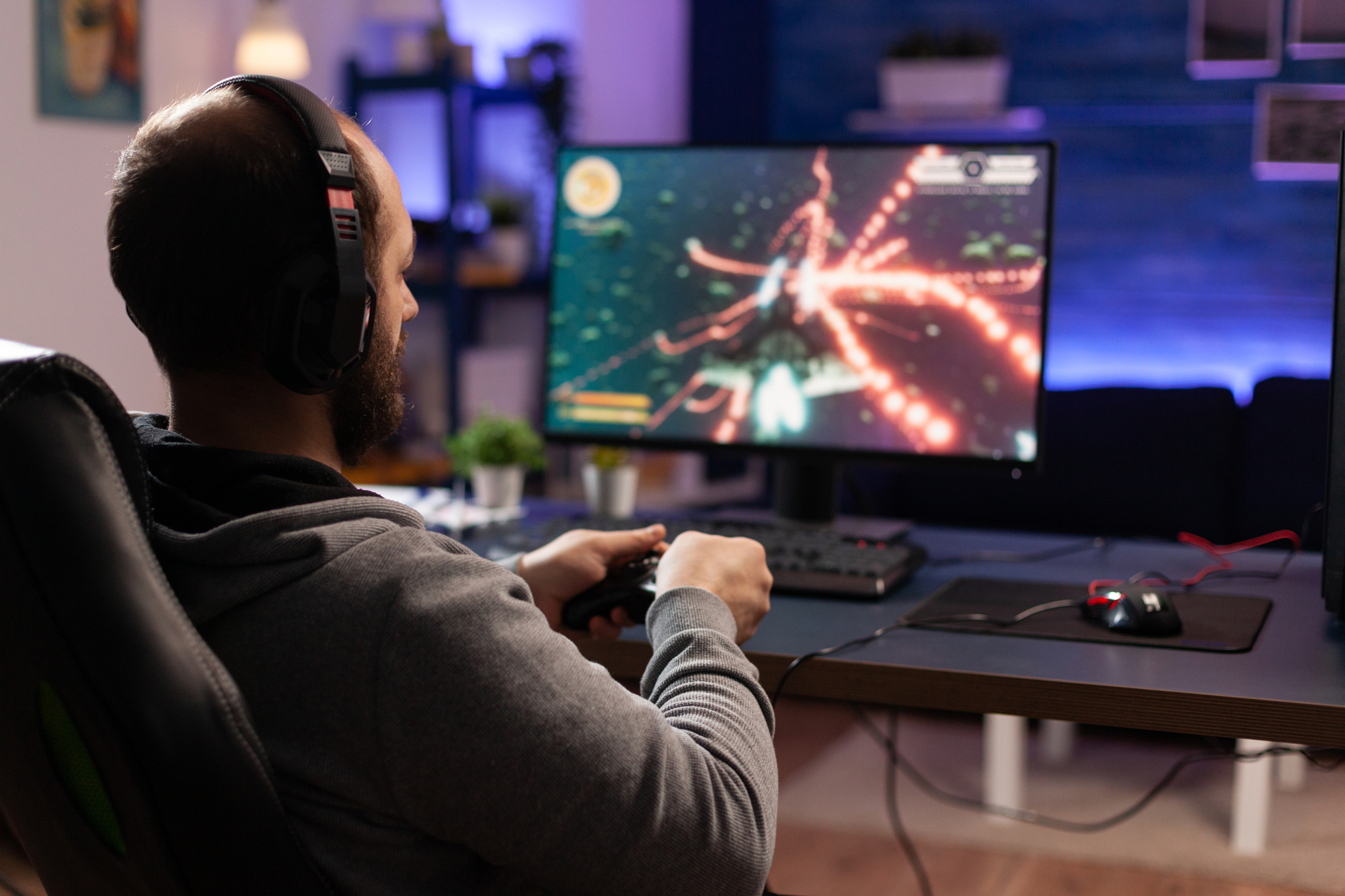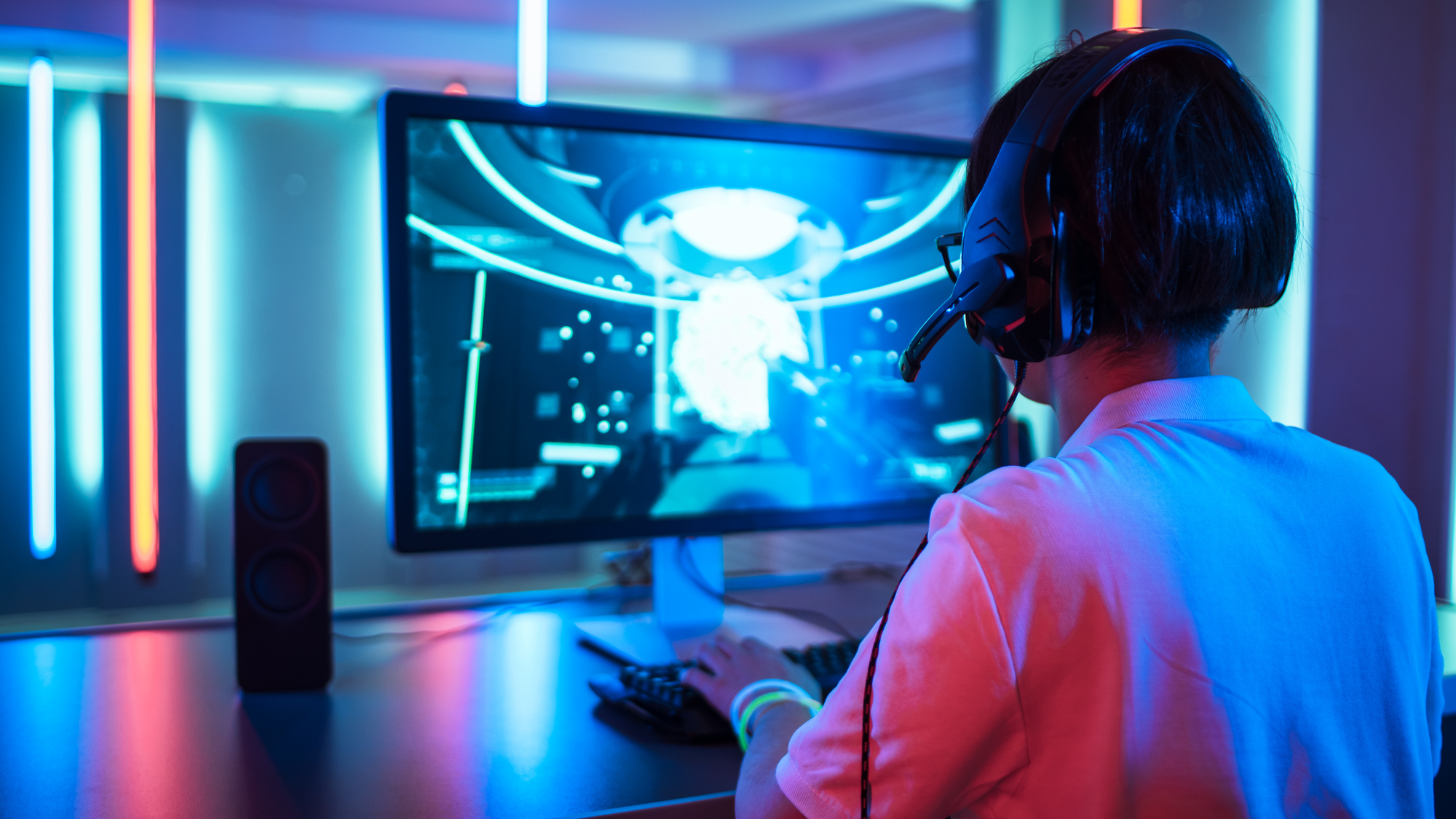Gaming is reshaping the landscape of remote work, offering innovative solutions for collaboration and productivity. The industry’s inherent digital nature and technological expertise make it well-suited to adapt to distributed work environments. Remote work in gaming has led to increased flexibility, access to global talent pools, and improved work-life balance for many professionals.
The gaming sector’s experience with virtual worlds and online interactions provides valuable insights for other industries transitioning to remote work. Game developers are creating tools and platforms that facilitate seamless communication and teamwork across distances. These advancements are likely to influence how remote work evolves in various fields beyond gaming.
As technology continues to progress, the gaming industry’s contributions to remote work practices will likely grow. Virtual and augmented reality technologies, originally developed for gaming, are being adapted for remote work applications. This crossover between gaming and remote work technologies promises to enhance productivity and engagement for distributed teams across multiple sectors.
The Impact of Gaming on Remote Work Culture
Gaming has become a significant factor in shaping remote work environments. It influences communication, team dynamics, and employee well-being in distributed workforces.
Enhancing Communication and Team-Building
Gaming fosters connections among remote workers. Virtual game sessions create shared experiences, helping employees bond across distances. Multiplayer games like “Among Us” or “Jackbox Party Pack” promote collaboration and trust-building.
These activities often lead to improved workplace communication. Employees who game together tend to communicate more openly in professional settings. This enhanced rapport translates to better teamwork on projects and tasks.
Gaming also helps break down hierarchical barriers. When playing, employees at different levels interact on equal footing, fostering a more inclusive work culture.
Gaming as a Tool for Employee Engagement
Companies increasingly use gaming elements to boost engagement in remote work. Gamification of tasks and goals makes work more exciting and motivating for employees.
Leaderboards, achievement badges, and point systems add a competitive edge to routine work. This approach can increase productivity and job satisfaction among remote workers.
Virtual reality games offer immersive team-building experiences. They simulate in-person interactions, helping maintain a sense of camaraderie in distributed teams.
Gaming events serve as virtual water cooler moments. They provide much-needed social interaction for remote employees, combating feelings of isolation.
Balancing Work and Life through Gaming
Gaming offers a valuable outlet for stress relief in remote work settings. Short gaming breaks can help employees recharge and maintain focus throughout the workday.
Some companies encourage gaming during set hours to promote work-life balance. This flexibility allows employees to manage their energy levels and avoid burnout.
Multiplayer games provide social connections outside of work discussions. They help remote workers separate their professional and personal lives, leading to better overall well-being.
Gaming communities within companies often extend beyond work hours. These groups give employees a sense of belonging and support, crucial for remote work satisfaction.
Technological Advancements Driving Gaming in Remote Work
Gaming technologies are revolutionizing remote work practices. These innovations enhance professional networking, team connectivity, and management tools in virtual environments.
Leveraging Gaming Platforms for Professional Networking
Gaming platforms now serve as hubs for professional networking in remote work settings. Virtual spaces like Gather.town and Framevr.io recreate office environments, allowing coworkers to interact through avatars. These platforms integrate video conferencing, document sharing, and collaborative tools.
LinkedIn has partnered with Microsoft to create virtual networking events using Xbox avatars. This blend of professional networking and gaming technology facilitates more engaging interactions among remote workers.
Companies are adopting game-like elements in their internal communication tools. Slack and Microsoft Teams now offer customizable avatars and virtual backgrounds, making remote conversations more personal and interactive.
Innovation in Remote Team Connectivity
Game engines are powering new ways for remote teams to connect. Unity and Unreal Engine are being used to create virtual office spaces where teams can collaborate in 3D environments.
Virtual reality platforms like Spatial and AltspaceVR enable immersive team meetings. These tools allow remote workers to feel present in the same space, improving communication and reducing isolation.
Augmented reality apps are enhancing remote collaboration. Tools like Microsoft Mesh blend the physical and digital worlds, letting team members interact with 3D models and data visualizations in shared virtual spaces.
The Evolution of Remote Team Management Tools
Project management software is incorporating game-inspired features to boost engagement. Trello and Asana now include point systems, progress bars, and achievements to motivate remote teams and track productivity.
AI-powered virtual assistants, inspired by non-player characters in games, are streamlining remote work processes. These assistants handle scheduling, answer queries, and provide task reminders, freeing up time for more complex work.
Gamified learning platforms are transforming remote training and skill development. Platforms like Kahoot! and Duolingo use game mechanics to make corporate training more engaging and effective for distributed teams.
Addressing Challenges Through Gaming Strategy
Gaming approaches can tackle common remote work obstacles. These methods boost creativity, combat isolation, and help adapt to flexible environments.
Maintaining Creativity and Motivation
Virtual brainstorming sessions using game-like platforms spark innovative ideas. Teams can use digital whiteboards with interactive elements to visualize concepts collaboratively. Timed challenges and friendly competitions encourage quick thinking and problem-solving.
Gamified task management systems turn daily work into engaging quests. Employees earn points or badges for completing projects, fostering a sense of achievement. Progress bars and level-up systems provide visual feedback on skill development and career growth.
Regular virtual team-building games keep motivation high. Online escape rooms or multiplayer puzzle games promote bonding and creative thinking. These activities break up the workday monotony and refresh mental energy.
Overcoming Isolation and Building Trust
Digital avatars and virtual office spaces create a sense of presence. Team members can customize their online personas, adding personality to remote interactions. These virtual environments allow for spontaneous conversations, mimicking office dynamics.
Trust-building exercises adapted from cooperative games strengthen team relationships. Shared goals and interdependent tasks in virtual simulations encourage reliance on colleagues. Role-playing scenarios help develop empathy and communication skills.
Social gaming hours provide informal bonding opportunities. Multiplayer games like trivia or word games offer low-pressure socializing. These events create shared experiences and inside jokes, fostering a team culture.
Adapting to Flexible Schedules and Environments
Asynchronous collaboration tools inspired by turn-based games accommodate diverse schedules. Project management platforms with game-like interfaces allow team members to contribute at their own pace. Clear visual cues show task status and deadlines, keeping everyone aligned.
Virtual reality meeting spaces adapt to various work environments. Teams can gather in customizable 3D rooms, regardless of physical location. These immersive spaces help separate work and home life, creating mental boundaries.
Flexible goal-setting systems borrowed from role-playing games support varied work patterns. Employees can choose daily “quests” that fit their peak productivity times. This approach balances autonomy with accountability, suiting different work styles.
Gaming’s Role in the Future of Work
Gaming technologies and principles are reshaping remote work practices. Companies are adopting game-inspired approaches to boost engagement, collaboration, and skill development among distributed teams.
Predictions for Gaming and Remote Work Dynamics
Virtual reality (VR) and augmented reality (AR) technologies from gaming are likely to transform remote work environments. These tools can create immersive virtual offices, allowing remote workers to interact as if physically present. Gamified productivity apps may become standard, using point systems and rewards to motivate employees and track progress on tasks.
Team-building activities could shift to multiplayer game formats, fostering camaraderie among geographically dispersed colleagues. Problem-solving skills honed through gaming may become highly valued in the job market, as companies seek adaptable workers for complex remote projects.
Integrating Gaming into Corporate Learning and Development
Corporations are incorporating game-based learning modules into their training programs. These interactive experiences can simulate real-world scenarios, allowing employees to practice skills in a low-risk environment. Leaderboards and achievement systems borrowed from games can track progress and encourage healthy competition among learners.
Virtual reality training simulations are gaining traction, particularly for technical or hands-on roles that are challenging to replicate remotely. Game-like elements in project management tools help teams visualize workflows and collaborate more effectively across distances.
Measuring the Success of Gaming in Remote Settings
Companies are developing metrics to evaluate the impact of gaming elements on remote work performance. Key indicators include employee engagement levels, skill acquisition rates, and productivity improvements. Surveys and data analytics tools track how game-inspired features affect job satisfaction and team cohesion in virtual workplaces.
Return on investment for game-based training initiatives is assessed through comparisons with traditional methods. Long-term studies are examining how gaming skills translate to career advancement in remote work contexts.











